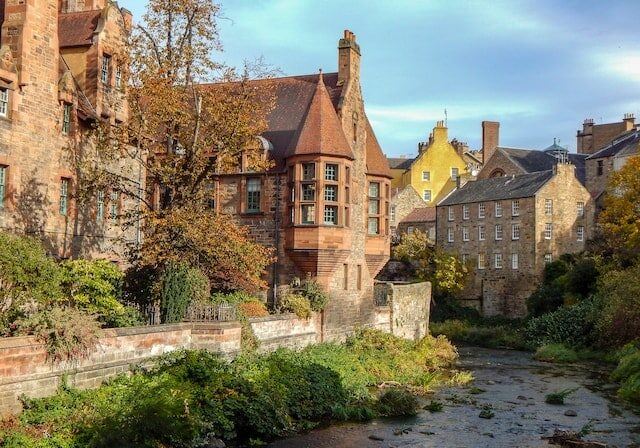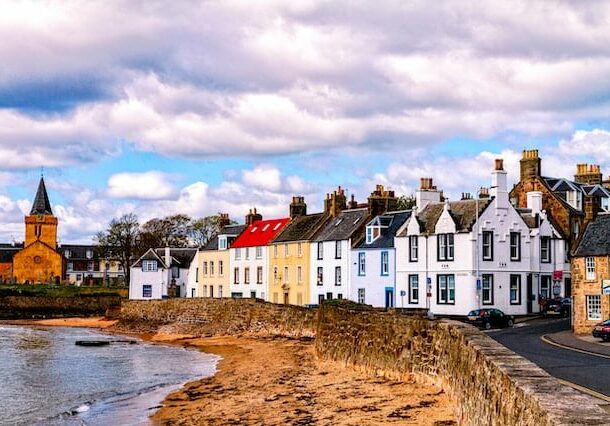
As the United Kingdom continues to navigate the intricacies of immigration and nationality laws, understanding the benefits associated with Scottish citizenship by descent becomes essential for those exploring pathways to reclaim or establish their ties to this culturally rich and historically significant region on the edge of the Atlantic.
Do you suspect, or know for sure, that you have Scottish ancestry? Do you think you could locate the documents to prove it? Then, keep reading for more information.
Although, at this moment in time, Scotland is not an independent country and is a part of the United Kingdom of Great Britain and Northern Ireland. Scottish citizens would be entitled to hold a Scottish passport after independence. However, until the event of Scottish independence, all those with Scottish ancestry must make an application for British citizenship.
Keep reading for information on how to obtain British citizenship if your family has Scottish roots.
Eligibility Criteria for Scottish Citizenship by Descent
First and foremost, it’s worth reminding that Scotland is part of the United Kingdom, so Scots have UK citizenship. Scottish citizens would be entitled to hold a Scottish passport only in the event of independence in Scotland.
Children born after independence
A child born out of Scotland after independence would automatically be qualified for Scottish citizenship if at least one of their parents is a Scottish citizen. And there would be a further route for anyone wanting to become a Scottish citizen after independence: applying based on the qualifying criteria.
However, until the event of Scottish independence, they can still apply for British citizenship by descent, which is a pathway that allows individuals with Scottish, English, or Welsh ancestry to claim British citizenship.
This means that you can become a citizen of the United Kingdom based on the nationality or heritage of your parents or grandparents. By embracing this opportunity, you can establish a deeper connection with the UK and celebrate your cultural heritage.
Those born in Scotland
You do not automatically get British citizenship if you were born in the UK. You need to check if you’re a British citizen, depending on when you were born and your parents’ circumstances. You may be eligible to apply for citizenship if you were born in the UK and are not automatically a British citizen. However, it’s important to check if you qualify through other means, such as the Windrush scheme.
If you were born on or after 1 January 1983 (following the British Nationality Act 1981, which includes the definition of the term British Citizen by Descent and the rules around it), you may be eligible if:
- You are under 18, and one of your parents became a British citizen or obtained permission to stay in the UK permanently since your birth.
- You lived in the UK until the age of 10 or older.
In these cases, you must apply for British citizenship.
In certain cases, you don’t need to apply because you are entitled to automatic citizenship. This happens if:
- You were born in the UK on or after 1 January 1983.
- One of your parents was a British citizen or was “settled” in the UK when you were born.
In this case, you can apply directly for a UK passport or request a letter confirming your citizenship (immigration status). Different processes apply if you reside in the Channel Islands, the Isle of Man, or a British overseas territory.
If you were born before 1983, you are typically automatically a British citizen unless certain circumstances apply. These include cases where your father was a diplomat working for a non-UK country or if your father was considered an “enemy alien in occupation,” and you were born in the Channel Islands during World War 2.
Similar to those born after 1983, you can choose to apply for a British passport or request a letter confirming your citizenship (immigration status). The process for residents of the Channel Islands, the Isle of Man, or British overseas territories may differ.
 Those born outside of Scotland and the United Kingdom
Those born outside of Scotland and the United Kingdom
If you were born outside the United Kingdom, you may still be eligible for British citizenship by descent. British citizenship is typically automatically passed down one generation to children born outside the UK.
For example, you might automatically become a citizen if you’re born outside the UK to a British parent. But your children will not automatically be citizens if they’re born outside the UK. If you’re not automatically a citizen, you may be eligible to apply to ‘register’ as one.
If you were born on or after 1 July 2006, you are automatically a British citizen if all of the following apply:
- Your mother or father was a British citizen when you were born
- Your British parent could pass on their citizenship to you
Note that if your father was a British citizen when you were born, and your mother was married to someone else at the time, you may not automatically be a British citizen. You might be eligible to apply for citizenship using the form UKF.
If you were born between 1 January 1983 and 30 June 2006, you are automatically a British citizen if all of the following apply:
- Your mother or father was a British citizen when you were born (they must have been married if your father had British citizenship but your mother did not)
- Your British parent could pass on their citizenship to you
If you were born before 1983, you may automatically be a British citizen if all of the following apply:
- Your father was British
- A citizen of the United Kingdom and its Colonies
- Married to your mother
- Able to pass on his citizenship to you
Your British parent could pass on their citizenship to you if they were one of the following:
- Born or adopted in the UK
- Given citizenship after applying for it in their own right (not based on having a British parent)
- Working as a Crown servant when you were born (for example, in the diplomatic service, overseas civil service, or armed forces)
OBS: If you qualify for citizenship in this way, your children will not automatically become British citizens if they’re born outside the UK. Check if you qualify another way.
Double descent: the alternative
British citizenship by double descent may be possible for a person born before 1983. It means you can claim British citizenship if your grandfather or grandmother was British, even if you or your parents were born outside the UK. This pathway allows you to apply for British citizenship by double descent, recognizes the importance of your grandparents’ British citizenship, and offers you the opportunity to establish a connection with your British heritage.
If you were born outside the UK on or after 1 January 1983 and your British parent is British by descent, you will not be British by descent. However, if you were born outside the UK and your British parent obtained British citizenship other than by descent (for example, because they naturalized as a British citizen), you will be British by descent.
Historical Context of Scottish Citizenship by Descent Applications
Historical legislative unfairness refers to instances in the past where the legislation or laws pertaining to UK citizenship were deemed unjust or discriminatory. These unfairnesses often affected specific groups of individuals, leading to disparities and inequalities in acquiring or retaining British citizenship.

The unfairness stemmed from the fact that individuals who had resided in the UK for decades, contributing to society and considering themselves British, suddenly faced challenges in proving their right to remain in the country and obtain a British passport. This situation highlighted the unjust consequences of retrospective changes in the Scottish immigration law and the lack of documentation or record-keeping systems to support individuals’ claims of citizenship.
The UK government acknowledged the historical legislative unfairness faced by the Windrush Generation and has taken steps to rectify the situation. The Windrush Scheme was established to provide support and assistance to affected individuals, including the provision of documentation confirming their right to live and work in the UK.
Documentary Evidence Required
Here is a list of the documents that you’ll need to bring in order to fill out your application:
- a current passport (with a blank page for your visa) or another valid travel document
- your full birth certificate
- the full birth certificates of the parent and grandparent your ancestry claim is based on
- evidence that you’re planning to work in the UK, for example job offers you’ve received or a business plan if you’re self-employed
- evidence, such as bank statements, that prove you can support yourself and any dependents in the UK – it must be dated within 31 days from when you submit your application
Depending on your circumstances, you might also need to provide:
- evidence that your parents or grandparents changed their name since birth, for example marriage or civil partnership certificates or a deed poll
- legal adoption papers if you or your parents are adopted
- your tuberculosis test results if you’re from a country where you have to take a TB test
- your marriage certificate or civil partnership registration document if your spouse or civil partner wants to join you in the UK
Application Process for Scottish Citizenship
To apply for a British citizenship by descent, you will need to complete the appropriate application forms and provide supporting documentation. The application process may vary depending on your specific circumstances, so it is crucial to consult the official website of the UK Home Office or seek professional advice to ensure a smooth and accurate application.

However, in other circumstances, such as, for example, if one of your parents acquired British citizenship after you were born, then you will have to apply for British nationality. It’s worth checking all the options on the UK Government website, or consulting an immigration consultant, who will be able to provide information tailored to your specific situation.
The status of your British parent or British grandparent can be acquired through birth, adoption, naturalization, or registration. Some cases may require you to apply for registration as a British citizen rather than obtaining citizenship automatically.
It’s important to fulfill the good character requirement, demonstrating that you have not engaged in activities that could negatively impact the UK’s reputation or security. Remember that the regulations and criteria for British citizenship through lineage can be intricate and subject to change, so consulting official guidelines or seeking professional advice is recommended to ensure accurate information for your specific circumstances.
Does Scotland Allow For Dual Citizenship?
Scotland allows for dual citizenship. Therefore, anyone obtaining dual citizenship does not need to renounce their existing citizenship when they are becoming a Scottish citizen. The inverse is true for existing Scottish citizens taking on a second citizenship. It’s also possible to take on a third citizenship, if that is available to you. However, it also depends on the rule of citizenship that you currently hold.
Implications of dual citizenship
If you want to take on Scottish citizenship, you must check whether your current citizenship allows for dual citizenship and if in doing so means that you must renounce your current citizenship, you must be aware of the process and implications that come about from this choice.
However, this depends on the rules of the country whose citizenship you currently hold. It’s possible that you may lose rights and privileges associated with your citizenship, lose travel and residency rights, it could affect your inheritance rights and impact your right to vote, among other implications.
Citizens of the United States are permitted to hold dual citizenship. On the other hand, Austrian citizens are not permitted to hold dual citizenship, in most circumstances.
How Can Global Citizen Solutions Help You?
Global Citizen Solutions is a boutique migration consultancy firm with years of experience delivering bespoke residence and citizenship by investment solutions for international families. With offices worldwide and an experienced, hands-on team, we have helped hundreds of clients worldwide acquire citizenship, residence visas, or homes while diversifying their portfolios with robust investments.
We guide you from start to finish, taking you beyond your citizenship or residency by investment application.

Frequently Asked Questions for Scottish Citizenship by descent
Can you become a Scottish citizen by descent?
Yes, you can obtain Scottish – at this point in time, British citizenship – through your ancestry. If you were born in the UK, you are automatically a citizen if you fulfill some criteria (for example, if one of your parents has settled status or if you are under 18 and one of your parents has become a British citizen). If born outside the UK, you may be eligible if one or both parents have British citizenship otherwise than by descent. This includes citizenship acquired through birth in the UK, registration, or naturalization. In some cases, having a British grandparent may also qualify you for citizenship by double descent.
Can I get citizenship if my grandfather was British?
Yes, it is possible to be eligible for British citizenship if your grandfather was British. This falls under the category of British citizenship by double descent. However, specific eligibility criteria and requirements apply, and it is essential to thoroughly review the current regulations and consult official sources or seek professional advice to determine your eligibility and understand the application process. To find out the exact details of the UK citizenship by descent grandparent route, check the UK Government website or get in contact with an immigration consultant.
Who can automatically obtain British citizenship by descent?
If you were born in the UK before 1983, you automatically have British citizenship unless certain circumstances apply. These include cases where your father was a diplomat working for a non-UK country or if your father was considered an “enemy alien in occupation,” and you were born in the Channel Islands during World War 2.
If you were born in the UK on or after 1 January 1983, you are automatically a British citizen if one of your parents had British citizenship or was “settled” in the UK when you were born.
Does Scotland have its own passport?
No. Scotland is part of the UK, so Scots have a UK passport. Scottish citizens would be entitled to hold a Scottish passport in the event of an independent Scotland.

 Those born outside of Scotland and the United Kingdom
Those born outside of Scotland and the United Kingdom
